Associate of Arts in Nursing
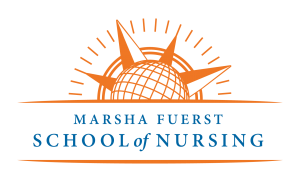
The Associate of Arts in Nursing Program at the Marsha Fuerst School of Nursing is committed to advancing both the art and science of nursing by empowering graduates to value scholarship, leadership, and lifelong learning in a dynamic healthcare environment. Once a graduate is made eligible by the BRN, they may take the NCLEX-RN and, upon passing the exam, become an entry-level Registered Nurse—ready to meet the diverse health care needs of the community they will serve.
Learn how our Associate Degree Program for Nurses (ADN) at MFSON can provide you with the education and hands-on training you need to begin a rewarding career in nursing.
The Associate of Arts in Nursing program is available at the following campuses which are accredited by the Accrediting Bureau of Health Education Schools (ABHES):
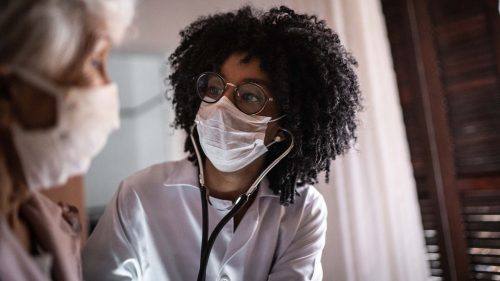
Associate of Arts in Nursing
Overview of the Associate Degree Program for Nurses (ADN)
The Associate of Arts in Nursing (ADN) program provides the education and training for graduates to be qualified to apply for licensure through the Board of Registered Nursing (BRN) and take the NCLEX-RN exam required to become a Registered Nurse. The ADN program is an all-inclusive year-round program, consisting of six 16-week semesters over the course of 24 months, which allows many graduates to enter the workforce sooner than students enrolled in other traditional nursing programs.
The ADN program provides students with the opportunity to develop the knowledge and skills necessary to function in a variety of settings. Students enrolled in this program receive classroom, laboratory, and clinical instruction in nursing areas of fundamentals, anatomy and physiology, pharmacology, medical/surgical nursing, mental health, obstetrics, and pediatric nursing.
The Associate of Arts in Nursing program at the Marsha Fuerst School of Nursing is approved by the California Board of Registered Nursing (BRN) and accredited by the Accrediting Bureau of Health Education Schools (ABHES) at Glendale Career College, North-West College San Diego, North-West College West Covina, North-West College Riverside, and North-West College Bakersfield.
Job Growth Outlook
According to the Bureau of Labor Statistics, the demand for healthcare services is expected to continue to increase in the future because of the aging population, given that older people typically have more medical problems than younger people. In addition, growth is also expected to be faster than average in outpatient care centers, where patients do not stay overnight, such as those which provide same-day chemotherapy, rehabilitation, and surgery.
Preparation for Licensure
Students completing the ADN program are qualified to apply for licensure through the Board of Registered Nursing (BRN). Once a graduate is made eligible by the BRN, the graduate may take the NCLEX-RN, and the college provides on-going NCLEX-RN preparation and personalized remediation aimed toward student success.
The Associate of Arts in Nursing program meets the education requirements for a program of study designed to lead to licensure as a Registered Nurse in the State of California.
The State of California requires an applicant for a Registered Nurse professional licensure to complete a nursing program that consists of 58-semester credit program offered at an institution approved by the California Board of Registered Nursing (BRN).
Graduates of this program must also pass the NCLEX exam to become a Registered Nurse, which is offered by the National Council of State Boards of Nursing, Inc., after a student successfully completes the College’s Associate of Arts in Nursing program.
See the College’s NCLEX-RN pass rates here:
The College has not made a determination that the Associate of Arts in Nursing program meets the Registered Nurse professional licensure requirements of any other state.
*Bureau of Labor Statistics, U.S. Department of Labor, Occupational Outlook Handbook, Registered Nurses, on the Internet at https://www.bls.gov/ooh/healthcare/registered-nurses.htm (visited June 2020). For the latest national information, please visit U.S. Bureau of Labor Statistics.
Marsha Fuerst School of Nursing cannot guarantee employment.
Attend a Campus Near You!
Associates Degree Program for Nurses (ADN) is available at the following campus locations:
The Marsha Fuerst School of Nursing at Glendale Career College, North-West College San Diego, North-West College West Covina, North-West College Riverside, and North-West College Bakersfield are proudly accredited, licensed to operate and/or recognized by the following institutions:
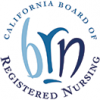
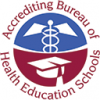





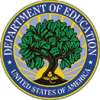


Questions?
Let us help you launch your career by contacting us today. Simply fill out the form below or call us at 1-888-408-4211. Classes are starting soon!
Registered Nursing Careers & Work Environment
Registered Nurses are the largest health care occupation. They work in hospitals, physicians’ offices, home healthcare services, and nursing care facilities. Others work in schools or outpatient clinics, or serve in the military. Home health and public health nurses travel to patients’ homes, schools, community centers, and other sites. Nurses generally work in well-lit, comfortable health care facilities. They need physical strength and stamina to lift or move patients and must be able to cope with human suffering and frequent emergencies. Registered Nurses may spend considerable time walking and standing.
The Associate of Arts in Nursing Program at Marsha Fuerst School of Nursing at North-West College provides the education and training needed to begin a career working in a variety of different medical and health care facilities, including:
Employment Opportunities as a Registered Nurse
Every nurse has the legal authority, responsibility and accountability to provide safe competent nursing care to patients in a variety of healthcare settings, including hospitals, clinics, physician offices, home health services, and nursing care facilities. Our faculty and Career Services Team will assist you with interviewing skills, resume building, and the preparation needed to land your first job as a Registered Nurse.



Quick Facts about Registered Nurses*
*Source: https://www.bls.gov/ooh/healthcare/registered-nurses.htm; | https://www.labormarketinfo.edd.ca.gov/occguides/ More information, including median wages and the job outlook for Registered Nurses in California can be found in the California Occupational Guide published by the State of California Employment Development Department. For the latest national information, please visit the U.S. Bureau of Labor Statistics.
Associate of Arts in Nursing Course Material
The Associate of Arts in Nursing Program provides students with the opportunity to develop the knowledge and skills necessary to function as a Registered Nurse in a variety of settings. The student will receive classroom, laboratory, and clinical instruction in nursing areas of fundamentals, anatomy and physiology, pharmacology, medical/surgical nursing, mental health, obstetrics, and pediatric nursing. After successful completion of the program, the student is required to take the NCLEX-RN examination for licensure as a Registered Nurse. Graduates of the Associate of Arts in Nursing Program may be employed as a Registered Nurse upon application to the State Board of Nursing and successfully passing the NCLEX-RN examination. This person may serve patients and clients in many settings including hospitals, clinics, doctor’s offices, extended-care facilities, and other medical facilities.
Anatomy
A study of the microscopic and macroscopic structures of the human body. Emphasis on cell structures, integumentary, skeletal, muscular, respiratory, cardiovascular, nervous, digestive, urinary, endocrine, and reproductive systems of the body including disorders of these structures and respective pathologies. Laboratory activities as related to body systems/parts. Outside preparation and study time, in addition to regular classroom activities, is required to complete the class assignments. The type of outside preparation may take the form of homework assignments, projects, reading, and required studying.
Anatomy Laboratory
A laboratory investigation of both the microscopic and macroscopic structures of the human body. Emphasis on cell structures, integumentary, skeletal, muscular, respiratory, cardiovascular, nervous, digestive, urinary, endocrine, and reproductive systems of the body including disorders of these structures and respective pathologies. Laboratory activities will also incorporate dissection studies of the fetal pig related to analogous body systems/parts. Outside preparation and study time, in addition to regular classroom activities, is required to complete the class assignments. The type of outside preparation may take the form of homework assignments, projects, reading, and required studying.
Human Physiology
The study of the dynamic nature of life processes in the human body including cell physiology and functions and inter-relations of the organ systems. Laboratory experience utilizing experimentation and scientific reasoning is an integral part of the course. Outside preparation and study time, in addition to regular classroom activities, is required to complete the class assignments. The type of outside preparation may take the form of homework assignments, projects, reading, and required studying.
Human Physiology Laboratory
The study of the dynamic nature of life processes in the human body including cell physiology and functions and inter-relations of the organ systems. Laboratory experience in utilizing experimentation and scientific reasoning is an integral part of the course. This is the lab complement to the Human Physiology lecture course. Outside preparation and study time, in addition to regular classroom activities, is required to complete the class assignments. The type of outside preparation may take the form of homework assignments, projects, reading, and required studying.
Microbiology
This course is designed as an introduction to microbiology, genetics, taxonomy, metabolism, controlling microbes, and immunology. Laboratory experience in order: staining, culturing, analysis and classification of microorganisms. Outside preparation and study time, in addition to regular classroom activities, is required to complete the class assignments. The type of outside preparation may take the form of homework assignments, projects, reading, and required studying.
Microbiology Laboratory
This course is designed as an introduction to Microbiology, pathogenicity, microbial morphology, genetics, taxonomy, metabolism, controlling microbes and immunology. Laboratory experience in order: staining, culturing, analysis and classification of microorganisms. Outside preparation and study time, in addition to regular classroom activities, is required to complete the class assignments. The type of outside preparation may take the form of homework assignments, projects, reading, and required studying.
English
The main purpose of English 101 is to introduce the college student to the conventions of academic writing and critical thinking. In this course you will analyze and write about selected readings assigned to you. It is an objective of this course that you learn to compose an effective essay. Upon completion of this course you will have gained the skills necessary to express your ideas in written form in a clear, concise, articulate, and grammatically correct manner. Outside preparation and study time, in addition to regular classroom activities, is required to complete the class assignments. The type of outside preparation may take the form of homework assignments, projects, reading, and required studying.
General Psychology
Survey of introductory topics such as learning, memory, sensation and perception, personality, life-span development, physiological basis of human behavior which includes: human sexuality, personality, stress and coping, relationships, psychological disorders and psychotherapeutic as well as pharmacotherapeutic interventions. Additional topics such as stress and health, psychological disorders, social psychology, and research methods may also be addressed. Outside preparation and study time, in addition to regular classroom activities, is required to complete the class assignments. The type of outside preparation may take the form of homework assignments, projects, reading, and required studying.
Oral Communications
This course enables the student to understand the ways that communication affects and relates to everyday experiences. COM101 is a fundamentals course that introduces the principles of effectively preparing, presenting, and critically consuming messages in nonverbal, one-on-one, small group, workplace, and public speaking contexts. Outside preparation and study time, in addition to regular classroom activities, is required to complete the class assignments. The type of outside preparation may take the form of homework assignments, projects, reading, and required studying.
Sociology
This course provides an introduction to sociology, “the systematic study of the relationship between individuals and society” (Croteau and Hoynes, p.5). The students will become familiar with sociology as an academic discipline. This course is a study of human relationships as they apply to social institutions and culture. The analysis of human behavior and needs as relate to the development of social organized groups is emphasized. Outside preparation and study time, in addition to regular classroom activities, is required to complete the class assignments. The type of outside preparation may take the form of homework assignments, projects, reading, and required studying.
Growth and Development
A survey of the physical, cognitive, emotional, and social factors in human development from conception to death. There will be an emphasis on understanding people at various ages of development in order to be more patient with them and to interact with them more effectively. This course will help the student develop a better understanding of people who are at a different stage in life than the one they are currently in. Outside preparation and study time, in addition to regular classroom activities, is required to complete the class assignments. The type of outside preparation may take the form of homework assignments, projects, reading, and required studying.
Fundamentals of Nursing Care
An introduction to the basic concepts of nursing: Nursing process, critical thinking, nursing theory, and patient-centered care. Concepts of pharmacology, nutrition, the healthcare team, and basic nursing interventions skills are introduced. Other topics presented are views of health and different healthcare team members. Outside preparation and study time, in addition to regular classroom activities, is required to complete the class assignments. The type of outside preparation may take the form of homework assignments, projects, reading, and required studying.
Introduction to Medical Surgical Nursing
The introductory medical surgical course delivers general assessment and alternations of health of various chronic disorders and their nursing management. Concepts of genetics, cancer, rehabilitation and perioperative care are also covered. The clinical experience will focus on providing basic patient care applying theoretical knowledge, analysis of medical management, and the nursing management of the hospitalized adult as a member of the healthcare team. Outside preparation and study time, in addition to regular classroom activities, is required to complete the class assignments. The type of outside preparation may take the form of homework assignments, projects, reading, and required studying.
Pediatric Nursing Care
This course introduces the student to the nursing care of the pediatric patient and their families. Concepts of growth and development, anticipatory guidance, health promotion and prevention are presented. Nursing care for children with chronic illness, acute illness, pain management, and life threating conditions are also discussed. Outside preparation and study time, in addition to regular classroom activities, is required to complete the class assignments. The type of outside preparation may take the form of homework assignments, projects, reading, and required studying.
Obstetrical Nursing Care
This course focuses on the nursing care of women from young adulthood to the older adult stage. Concepts of health promotion prevention, common health concerns and reproductive health for women is presented. Theories and perceptions of parenthood, pregnancy, delivery, and postpartum care are also discussed. Outside preparation and study time, in addition to regular classroom activities, is required to complete the class assignments. The type of outside preparation may take the form of homework assignments, projects, reading, and required studying.
Mental Health Nursing Care
This course provides students with nursing management for mental and psychiatric disorders and the corresponding nursing management. Standards of care and safety are discussed. Different intervention modalities are also presented. The student is also given ways to care for self. Outside preparation and study time, in addition to regular classroom activities, is required to complete the class assignments. The type of outside preparation may take the form of homework assignments, projects, reading, and required studying.
Advanced Medical Surgical Nursing
Advanced medical surgical nursing care provides students with a focus on critically ill and emergency patients; and different levels of floor nursing experiences. Patients with common critical illness and emergency presentations give students an opportunity to use prior nursing education for complex health assessment and setting priorities. Community base care is introduced in management of communicable disease, terrorism, mass causality, and disaster nursing. Outside preparation and study time, in addition to regular classroom activities, is required to complete the class assignments. The type of outside preparation may take the form of homework assignments, projects, reading, and required studying.
Transition to Registered Nursing
Provides content related to moving into the role of professional nursing practice using knowledge acquisition from student education and experiences. Leadership methods, prioritization and delegation are explored. Information about obtaining a license and preparing for the role of professional nursing is discussed. Outside preparation and study time, in addition to regular classroom activities, is required to complete the class assignments. The type of outside preparation may take the form of homework assignments, projects, reading, and required studying.
Intermediate Nursing Care
The intermediate medical surgical course focuses on the care of the older adult. The student develops skills to care for patients with many health, cultural, spiritual, and psychosocial needs. Alterations in health focuses on a variety of typical disorders of the older adult. Concepts of rehabilitation and perioperative care are also covered. The clinical experience will focus on providing basic patient care applying theoretical knowledge, analysis of medical management, and the nursing management of the hospitalized adult with chronic illness and working with the healthcare team. Outside preparation and study time, in addition to regular classroom activities, is required to complete the class assignments. The type of outside preparation may take the form of homework assignments, projects, reading, and required studying.
Pharmacological Nursing Care
Pharmacological concepts important to nursing practice are discussed. Topics include general pharmacology concepts; safety of medication administration and risk reduction; types of mediations by system; pain management; life span considerations; herbals and supplements. Other topic includes cultural aspects of medication and patient adherence strategies. Outside preparation and study time, in addition to regular classroom activities, is required to complete the class assignments. The type of outside preparation may take the form of homework assignments, projects, reading, and required studying.
NCLEX Review
Preparation for the NCLEX-RN exam is the focus of this course. A self-assessment of knowledge and personalized plan is designed to concentrate the student’s efforts in preparing for state boards. Outside preparation and study time, in addition to regular classroom activities, is required to complete the class assignments. The type of outside preparation may take the form of homework assignments, projects, reading, and required studying.
Associate of Arts in Nursing Course Activities
Registered Nurses (RNs) provide and coordinate patient care, educate patients and the public about various health conditions, and provide emotional support to patients and their family members.



Registered Nurses typically perform the following:
*Source: https://www.bls.gov/ooh/healthcare/registered-nurses.htm. For the latest national information, please visit U.S. Bureau of Labor Statistics. Glendale Career College cannot guarantee employment.
Questions?
Let us help you launch your career by contacting us today. Simply fill out the form below or call us at
1-888-408-4211
Classes are starting soon!
Request Information
Fill out a short online form and one of our Admissions Representatives will reach out and answer all of your questions.
Apply Online Now!
Ready to make your decision? You can apply online now in less than a few minutes.
Schedule a Tour
Come and see us in person! Talk to your future instructors, meet your future classmates and get familiar with your new home.
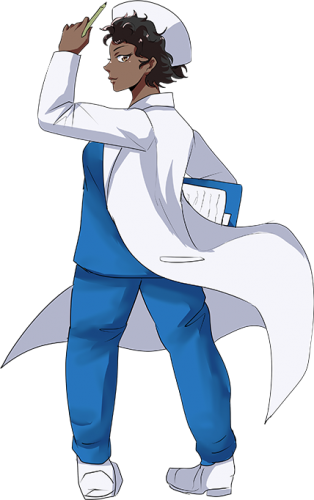

Overview of the Associate Degree Program for Nurses (ADN)
The Associate of Arts in Nursing (ADN) program provides the education and training for graduates to be qualified to apply for licensure through the Board of Registered Nursing (BRN) and take the NCLEX-RN exam required to become a Registered Nurse. The ADN program is an all-inclusive year-round program, consisting of six 16-week semesters over the course of 24 months, which allows many graduates to enter the workforce sooner than students enrolled in other traditional nursing programs.
The ADN program provides students with the opportunity to develop the knowledge and skills necessary to function in a variety of settings. Students enrolled in this program receive classroom, laboratory, and clinical instruction in nursing areas of fundamentals, anatomy and physiology, pharmacology, medical/surgical nursing, mental health, obstetrics, and pediatric nursing.
The Associate of Arts in Nursing program at the Marsha Fuerst School of Nursing is approved by the California Board of Registered Nursing (BRN) and accredited by the Accrediting Bureau of Health Education Schools (ABHES) at Glendale Career College, North-West College San Diego, North-West College West Covina, North-West College Riverside, and North-West College Bakersfield.
Job Growth Outlook
According to the Bureau of Labor Statistics, the demand for healthcare services is expected to continue to increase because of the aging population, given that older people typically have more medical problems than younger people. In addition, growth is also expected to be faster than average in outpatient care centers, where patients do not stay overnight, such as those which provide same-day chemotherapy, rehabilitation, and surgery.
Preparation for Licensure
Students completing the ADN program are qualified to apply for licensure through the Board of Registered Nursing (BRN). Once a graduate is made eligible by the BRN, the graduate may take the NCLEX-RN, and the college provides on-going NCLEX-RN preparation and personalized remediation aimed toward student success.
The Associate of Arts in Nursing program meets the education requirements for a program of study designed to lead to licensure as a Registered Nurse in the State of California.
The State of California requires an applicant for a Registered Nurse professional licensure to complete a nursing program that consists of 58-semester credit program offered at an institution approved by the California Board of Registered Nursing (BRN).
Graduates of this program must also pass the NCLEX exam to become a Registered Nurse, which is offered by the National Council of State Boards of Nursing, Inc., after a student successfully completes the College’s Associate of Arts in Nursing program.
See the College’s NCLEX-RN pass rates here:
The College has not made a determination that the Associate of Arts in Nursing program meets the Registered Nurse professional licensure requirements of any other state.
*Bureau of Labor Statistics, U.S. Department of Labor, Occupational Outlook Handbook, Registered Nurses, on the Internet at https://www.bls.gov/ooh/healthcare/registered-nurses.htm (visited June 2020). For the latest national information, please visit U.S. Bureau of Labor Statistics.
Marsha Fuerst School of Nursing cannot guarantee employment.
Attend a Campus Near You!
Associates Degree Program for Nurses (ADN) is available at the following campus locations:
The Marsha Fuerst School of Nursing at Glendale Career College, North-West College San Diego, North-West College West Covina, North-West College Riverside, and North-West College Bakersfield are proudly accredited, licensed to operate and/or recognized by the following institutions:












Questions?
Let us help you launch your career by contacting us today. Simply fill out the form below or call us at 1-888-408-4211. Classes are starting soon!
Registered Nursing Careers & Work Environment
Registered Nurses are the largest health care occupation. They work in hospitals, physicians’ offices, home healthcare services, and nursing care facilities. Others work in schools or outpatient clinics, or serve in the military. Home health and public health nurses travel to patients’ homes, schools, community centers, and other sites. Nurses generally work in well-lit, comfortable health care facilities. They need physical strength and stamina to lift or move patients and must be able to cope with human suffering and frequent emergencies. Registered Nurses may spend considerable time walking and standing.
The Associate of Arts in Nursing Program at Marsha Fuerst School of Nursing at North-West College provides the education and training needed to begin a career working in a variety of different medical and health care facilities, including:
Employment Opportunities as a Registered Nurse
Every nurse has the legal authority, responsibility and accountability to provide safe competent nursing care to patients in a variety of healthcare settings, including hospitals, clinics, physician offices, home health services, and nursing care facilities. Our faculty and Career Services Team will assist you with interviewing skills, resume building, and the preparation needed to land your first job as a Registered Nurse.



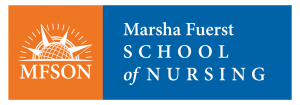

Quick Facts about Registered Nurses*
*Source: https://www.bls.gov/ooh/healthcare/registered-nurses.htm; | https://www.labormarketinfo.edd.ca.gov/occguides/ More information, including median wages and the job outlook for Registered Nurses in California can be found in the California Occupational Guide published by the State of California Employment Development Department. For the latest national information, please visit the U.S. Bureau of Labor Statistics.
Associate of Arts in Nursing Course Material
The Associate of Arts in Nursing Program provides students with the opportunity to develop the knowledge and skills necessary to function as a Registered Nurse in a variety of settings. The student will receive classroom, laboratory, and clinical instruction in nursing areas of fundamentals, anatomy and physiology, pharmacology, medical/surgical nursing, mental health, obstetrics, and pediatric nursing. After successful completion of the program, the student is required to take the NCLEX-RN examination for licensure as a Registered Nurse. Graduates of the Associate of Arts in Nursing Program may be employed as a Registered Nurse upon application to the State Board of Nursing and successfully passing the NCLEX-RN examination. This person may serve patients and clients in many settings including hospitals, clinics, doctor’s offices, extended-care facilities, and other medical facilities.
Anatomy
A study of the microscopic and macroscopic structures of the human body. Emphasis on cell structures, integumentary, skeletal, muscular, respiratory, cardiovascular, nervous, digestive, urinary, endocrine, and reproductive systems of the body including disorders of these structures and respective pathologies. Laboratory activities as related to body systems/parts. Outside preparation and study time, in addition to regular classroom activities, is required to complete the class assignments. The type of outside preparation may take the form of homework assignments, projects, reading, and required studying.
Anatomy Laboratory
A laboratory investigation of both the microscopic and macroscopic structures of the human body. Emphasis on cell structures, integumentary, skeletal, muscular, respiratory, cardiovascular, nervous, digestive, urinary, endocrine, and reproductive systems of the body including disorders of these structures and respective pathologies. Laboratory activities will also incorporate dissection studies of the fetal pig related to analogous body systems/parts. Outside preparation and study time, in addition to regular classroom activities, is required to complete the class assignments. The type of outside preparation may take the form of homework assignments, projects, reading, and required studying.
Human Physiology
The study of the dynamic nature of life processes in the human body including cell physiology and functions and inter-relations of the organ systems. Laboratory experience utilizing experimentation and scientific reasoning is an integral part of the course. Outside preparation and study time, in addition to regular classroom activities, is required to complete the class assignments. The type of outside preparation may take the form of homework assignments, projects, reading, and required studying.
Human Physiology Laboratory
The study of the dynamic nature of life processes in the human body including cell physiology and functions and inter-relations of the organ systems. Laboratory experience in utilizing experimentation and scientific reasoning is an integral part of the course. This is the lab complement to the Human Physiology lecture course. Outside preparation and study time, in addition to regular classroom activities, is required to complete the class assignments. The type of outside preparation may take the form of homework assignments, projects, reading, and required studying.
Microbiology
This course is designed as an introduction to microbiology, genetics, taxonomy, metabolism, controlling microbes, and immunology. Laboratory experience in order: staining, culturing, analysis and classification of microorganisms. Outside preparation and study time, in addition to regular classroom activities, is required to complete the class assignments. The type of outside preparation may take the form of homework assignments, projects, reading, and required studying.
Microbiology Laboratory
This course is designed as an introduction to Microbiology, pathogenicity, microbial morphology, genetics, taxonomy, metabolism, controlling microbes and immunology. Laboratory experience in order: staining, culturing, analysis and classification of microorganisms. Outside preparation and study time, in addition to regular classroom activities, is required to complete the class assignments. The type of outside preparation may take the form of homework assignments, projects, reading, and required studying.
English
The main purpose of English 101 is to introduce the college student to the conventions of academic writing and critical thinking. In this course you will analyze and write about selected readings assigned to you. It is an objective of this course that you learn to compose an effective essay. Upon completion of this course you will have gained the skills necessary to express your ideas in written form in a clear, concise, articulate, and grammatically correct manner. Outside preparation and study time, in addition to regular classroom activities, is required to complete the class assignments. The type of outside preparation may take the form of homework assignments, projects, reading, and required studying.
General Psychology
Survey of introductory topics such as learning, memory, sensation and perception, personality, life-span development, physiological basis of human behavior which includes: human sexuality, personality, stress and coping, relationships, psychological disorders and psychotherapeutic as well as pharmacotherapeutic interventions. Additional topics such as stress and health, psychological disorders, social psychology, and research methods may also be addressed. Outside preparation and study time, in addition to regular classroom activities, is required to complete the class assignments. The type of outside preparation may take the form of homework assignments, projects, reading, and required studying.
Oral Communications
This course enables the student to understand the ways that communication affects and relates to everyday experiences. COM101 is a fundamentals course that introduces the principles of effectively preparing, presenting, and critically consuming messages in nonverbal, one-on-one, small group, workplace, and public speaking contexts. Outside preparation and study time, in addition to regular classroom activities, is required to complete the class assignments. The type of outside preparation may take the form of homework assignments, projects, reading, and required studying.
Sociology
This course provides an introduction to sociology, “the systematic study of the relationship between individuals and society” (Croteau and Hoynes, p.5). The students will become familiar with sociology as an academic discipline. This course is a study of human relationships as they apply to social institutions and culture. The analysis of human behavior and needs as relate to the development of social organized groups is emphasized. Outside preparation and study time, in addition to regular classroom activities, is required to complete the class assignments. The type of outside preparation may take the form of homework assignments, projects, reading, and required studying.
Growth and Development
A survey of the physical, cognitive, emotional, and social factors in human development from conception to death. There will be an emphasis on understanding people at various ages of development in order to be more patient with them and to interact with them more effectively. This course will help the student develop a better understanding of people who are at a different stage in life than the one they are currently in. Outside preparation and study time, in addition to regular classroom activities, is required to complete the class assignments. The type of outside preparation may take the form of homework assignments, projects, reading, and required studying.
Fundamentals of Nursing Care
An introduction to the basic concepts of nursing: Nursing process, critical thinking, nursing theory, and patient-centered care. Concepts of pharmacology, nutrition, the healthcare team, and basic nursing interventions skills are introduced. Other topics presented are views of health and different healthcare team members. Outside preparation and study time, in addition to regular classroom activities, is required to complete the class assignments. The type of outside preparation may take the form of homework assignments, projects, reading, and required studying.
Introduction to Medical Surgical Nursing
The introductory medical surgical course delivers general assessment and alternations of health of various chronic disorders and their nursing management. Concepts of genetics, cancer, rehabilitation and perioperative care are also covered. The clinical experience will focus on providing basic patient care applying theoretical knowledge, analysis of medical management, and the nursing management of the hospitalized adult as a member of the healthcare team. Outside preparation and study time, in addition to regular classroom activities, is required to complete the class assignments. The type of outside preparation may take the form of homework assignments, projects, reading, and required studying.
Pediatric Nursing Care
This course introduces the student to the nursing care of the pediatric patient and their families. Concepts of growth and development, anticipatory guidance, health promotion and prevention are presented. Nursing care for children with chronic illness, acute illness, pain management, and life threating conditions are also discussed. Outside preparation and study time, in addition to regular classroom activities, is required to complete the class assignments. The type of outside preparation may take the form of homework assignments, projects, reading, and required studying.
Obstetrical Nursing Care
This course focuses on the nursing care of women from young adulthood to the older adult stage. Concepts of health promotion prevention, common health concerns and reproductive health for women is presented. Theories and perceptions of parenthood, pregnancy, delivery, and postpartum care are also discussed. Outside preparation and study time, in addition to regular classroom activities, is required to complete the class assignments. The type of outside preparation may take the form of homework assignments, projects, reading, and required studying.
Mental Health Nursing Care
This course provides students with nursing management for mental and psychiatric disorders and the corresponding nursing management. Standards of care and safety are discussed. Different intervention modalities are also presented. The student is also given ways to care for self. Outside preparation and study time, in addition to regular classroom activities, is required to complete the class assignments. The type of outside preparation may take the form of homework assignments, projects, reading, and required studying.
Advanced Medical Surgical Nursing
Advanced medical surgical nursing care provides students with a focus on critically ill and emergency patients; and different levels of floor nursing experiences. Patients with common critical illness and emergency presentations give students an opportunity to use prior nursing education for complex health assessment and setting priorities. Community base care is introduced in management of communicable disease, terrorism, mass causality, and disaster nursing. Outside preparation and study time, in addition to regular classroom activities, is required to complete the class assignments. The type of outside preparation may take the form of homework assignments, projects, reading, and required studying.
Transition to Registered Nursing
Provides content related to moving into the role of professional nursing practice using knowledge acquisition from student education and experiences. Leadership methods, prioritization and delegation are explored. Information about obtaining a license and preparing for the role of professional nursing is discussed. Outside preparation and study time, in addition to regular classroom activities, is required to complete the class assignments. The type of outside preparation may take the form of homework assignments, projects, reading, and required studying.
Intermediate Nursing Care
The intermediate medical surgical course focuses on the care of the older adult. The student develops skills to care for patients with many health, cultural, spiritual, and psychosocial needs. Alterations in health focuses on a variety of typical disorders of the older adult. Concepts of rehabilitation and perioperative care are also covered. The clinical experience will focus on providing basic patient care applying theoretical knowledge, analysis of medical management, and the nursing management of the hospitalized adult with chronic illness and working with the healthcare team. Outside preparation and study time, in addition to regular classroom activities, is required to complete the class assignments. The type of outside preparation may take the form of homework assignments, projects, reading, and required studying.
Pharmacological Nursing Care
Pharmacological concepts important to nursing practice are discussed. Topics include general pharmacology concepts; safety of medication administration and risk reduction; types of mediations by system; pain management; life span considerations; herbals and supplements. Other topic includes cultural aspects of medication and patient adherence strategies. Outside preparation and study time, in addition to regular classroom activities, is required to complete the class assignments. The type of outside preparation may take the form of homework assignments, projects, reading, and required studying.
NCLEX Review
Preparation for the NCLEX-RN exam is the focus of this course. A self-assessment of knowledge and personalized plan is designed to concentrate the student’s efforts in preparing for state boards. Outside preparation and study time, in addition to regular classroom activities, is required to complete the class assignments. The type of outside preparation may take the form of homework assignments, projects, reading, and required studying.
Associate of Arts in Nursing Course Activities
Registered Nurses (RNs) provide and coordinate patient care, educate patients and the public about various health conditions, and provide emotional support to patients and their family members.



Registered Nurses typically perform the following:
*Source: https://www.bls.gov/ooh/healthcare/registered-nurses.htm. For the latest national information, please visit U.S. Bureau of Labor Statistics. Glendale Career College cannot guarantee employment.
Questions?
Let us help you launch your career by contacting us today. Simply fill out the form below or call us at
1-888-408-4211
Classes are starting soon!

